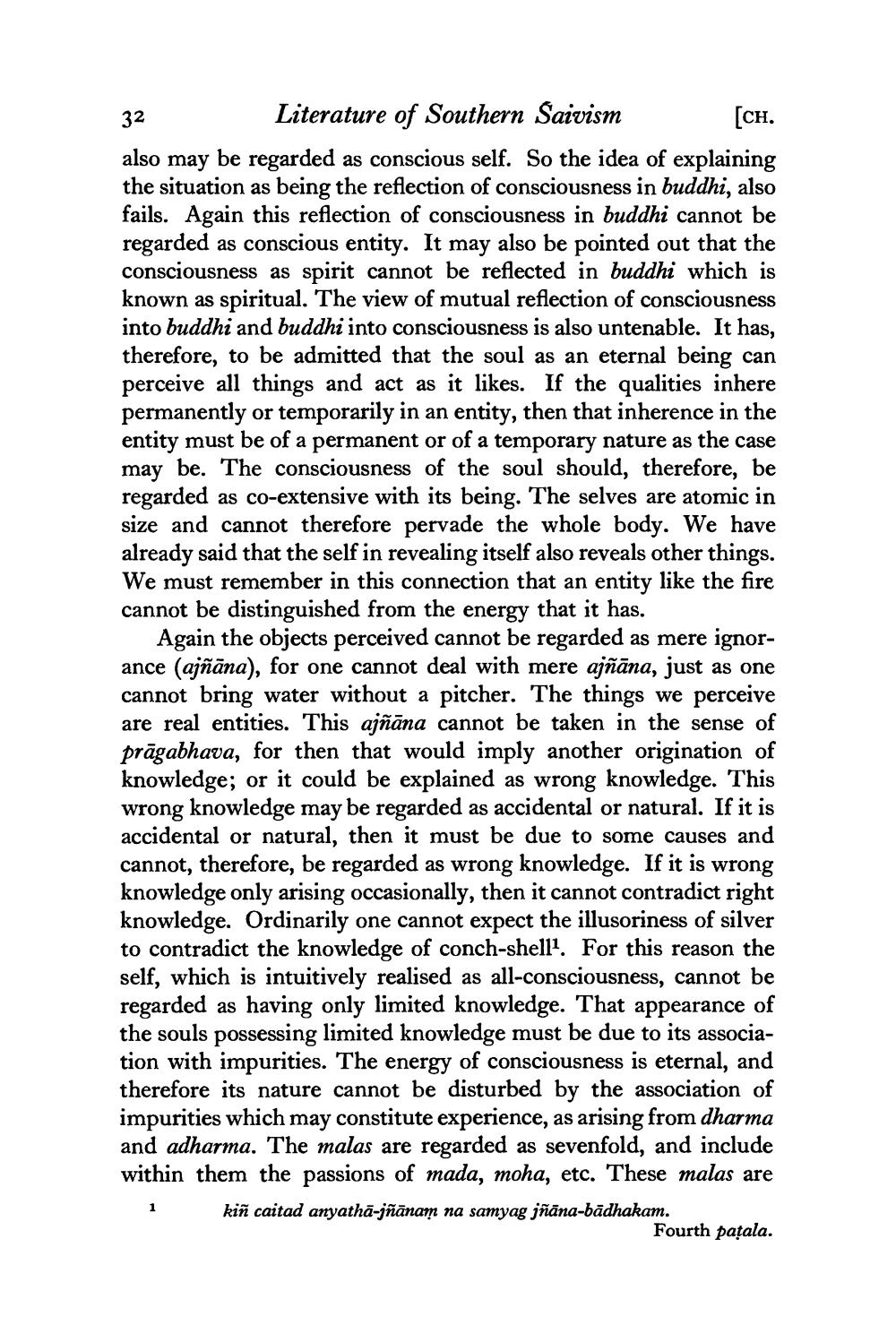________________
32
Literature of Southern Saivism [CH. also may be regarded as conscious self. So the idea of explaining the situation as being the reflection of consciousness in buddhi, also fails. Again this reflection of consciousness in buddhi cannot be regarded as conscious entity. It may also be pointed out that the consciousness as spirit cannot be reflected in buddhi which is known as spiritual. The view of mutual reflection of consciousness into buddhi and buddhi into consciousness is also untenable. It has, therefore, to be admitted that the soul as an eternal being can perceive all things and act as it likes. If the qualities inhere permanently or temporarily in an entity, then that inherence in the entity must be of a permanent or of a temporary nature as the case may be. The consciousness of the soul should, therefore, be regarded as co-extensive with its being. The selves are atomic in size and cannot therefore pervade the whole body. We have already said that the self in revealing itself also reveals other things. We must remember in this connection that an entity like the fire cannot be distinguished from the energy that it has.
Again the objects perceived cannot be regarded as mere ignorance (ajñāna), for one cannot deal with mere ajñāna, just as one cannot bring water without a pitcher. The things we perceive are real entities. This ajñāna cannot be taken in the sense of prāgabhava, for then that would imply another origination of knowledge; or it could be explained as wrong knowledge. This wrong knowledge may be regarded as accidental or natural. If it is accidental or natural, then it must be due to some causes and cannot, therefore, be regarded as wrong knowledge. If it is wrong knowledge only arising occasionally, then it cannot contradict right knowledge. Ordinarily one cannot expect the illusoriness of silver to contradict the knowledge of conch-shell?. For this reason the self, which is intuitively realised as all-consciousness, cannot be regarded as having only limited knowledge. That appearance of the souls possessing limited knowledge must be due to its association with impurities. The energy of consciousness is eternal, and therefore its nature cannot be disturbed by the association of impurities which may constitute experience, as arising from dharma and adharma. The malas are regarded as sevenfold, and include within them the passions of mada, moha, etc. These malas are kiñ caitad anyathā-jñānam na samyag jñāna-bādhakam.
Fourth patala.




